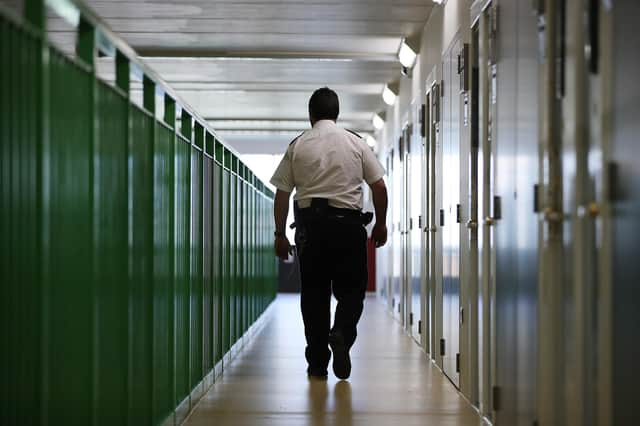Prison sentences should be reserved for those who would do us most harm – Karyn McCluskey


You can become entangled in the process and neglect the humans involved. But it’s important to be brought back to the reason we do what we do.
This week I had the privilege of listening to a woman talk about a short prison sentence she had (gratefully) received for an offence she admitted. She had been in the depths of alcohol addiction. Not an excuse, but at the heart of her offending.
Advertisement
Hide AdAdvertisement
Hide Ad“A short sentence is short enough to lose your house, your kids, your job and your connections, but not long enough to engage in anything that helps you change,” she said.
I usually resist talking about how a prison sentence gave someone the chance to get treatment for an addiction, or gave them a safe, warm place with three meals to get back to health and well-being.
Safe is a relative word. If your life is punctuated by domestic violence, if you have no support, if your addictions are out of control, prison might be a haven. And this woman was grateful. She addressed her drinking and made a plan for her life, post release.
Her desire to change, however, was thwarted by the length of her sentence. Programmes were not available during the time she was in and she was unable to access help.
I feel conflicted. I’m pleased that this woman has turned her life around, remembered who she is, and that she matters. The violence she endured (and it is a history of abuse so extreme I flinched when she told me) will not define her, no matter how much her ex-partner tried to make this so.
Yet I wonder why, in 21st century Scotland, she had to wait until she had her liberty removed to access a part of her own self that enabled the change to happen.
This is not to say that the journey was universally positive. There was an undercurrent of misogyny and dehumanisation from a small number of people working within the justice system, an ‘othering’ and dismissiveness that led to opportunities missed and crimes unreported. And yet she’s thankful.
We talk about the development of agency as one of the fundamental principles of being able to change behaviour and lives. It’s about being in control of our actions and their consequences. It’s about power and the ability to control what happens to you. This woman developed her personal agency, when she was given the space and time to reflect and recover.
Advertisement
Hide AdAdvertisement
Hide AdOn the flip side, there’s the loss of home, family and everything else – only she can say whether it was worth it.
It shouldn’t have to be this way. The Scottish Government nailed its colours to the mast in the new National Strategy for Community Justice – it says we must ensure services are accessible and available to address the needs of individuals accused or convicted of an offence; both in the community and leaving prison.
Community sentences can be positively life changing, the right support at the right time, while prison should really be reserved for those who would do us most harm.
Karyn McCluskey is chief executive of Community Justice Scotland
